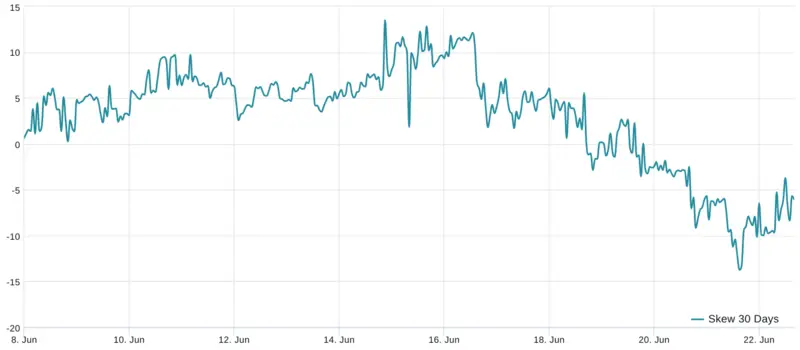Bitcoin price data suggests bulls will succeed in holding $30K as support this time
Bitcoin (BTC) has been trading above $31,000 after its 24.3% rally between June 15 and June 23, which caught many off guard. For bears, that meant facing $165 million in short futures contract liquidations, but the unexpected rally also brought some degree of discomfort for investors using Bitcoin derivatives.
Inflation remains the biggest question mark for traditional markets, a point highlighted by the recent 50-basis-point interest rate increase by the Bank of England, followed by similar moves in Norway and Switzerland, leading to the highest cost of capital in over a decade for the region.
In response to questions from lawmakers on the United States House Financial Services Committee on June 21, Federal Reserve Chair Jerome Powell said that “the process of getting inflation back down to 2% has a long way to go” and reiterated that “nearly all FOMC participants expect that it will be appropriate to raise interest rates somewhat further by the end of the year.”
According to JPMorgan strategists led by Marko Kolanovic, “the economy’s recent resilience may delay the onset of a recession,” so the impacts of the monetary tightening movement by the central bank are yet to be felt, “and ultimately a recession will likely be necessary to return inflation to target.”
Investors now question whether Bitcoin has the strength to trade above the $30,000 resistance amid the bearish pressure emerging from a potential economic recession and further central bank activity aimed at curbing the demand for capital.
Consequently, traders should closely monitor Bitcoin futures contract premiums and the costs of hedging using BTC options.
Bitcoin derivatives show modest improvement
Bitcoin quarterly futures are popular among whales and arbitrage desks. However, these fixed-month contracts typically trade at a slight premium to spot markets, indicating that sellers are asking for more money to delay settlement.
As a result, BTC futures contracts in healthy markets should trade at a 5% to 10% annualized premium — a situation known as contango, which is not unique to crypto markets.

The demand for leveraged BTC longs slightly increased as the futures contract premium jumped to 4.3% on June 22 from 3.2% one week prior, although it remains below the neutral 5% threshold.
Traders should also analyze options markets to understand whether the recent correction has caused investors to become more optimistic. The 25% delta skew is a telling sign of when arbitrage desks and market makers overcharge for upside or downside protection.
In short, if traders anticipate a Bitcoin price drop, the skew metric will rise above 7%, and phases of excitement tend to have a negative 7% skew.

The 25% delta skew metric did a complete turnaround as it exited the “fear” mode on June 16 as Bitcoin’s price reclaimed the $26,000 support. The indicator continued to improve until June 22, culminating with the moderate “greed” sentiment at a negative 8% skew.
Related: ‘Bitcoin-only’ buy-and-hold investing outperforms altcoins over long term, Analysis shows
The absence of excessive optimism is a good sign
Typically, a 4.3% futures basis and a negative 8% delta skew would be considered neutral market indicators, but that is not the case given the 21.5% Bitcoin price rally between June 15 and June 22. A certain amount of skepticism is healthy for buyers using derivatives contracts and opens room for further leverage use if needed.
The heated legal battle between Binance and the U.S. Securities and Exchange Commission presents a risk for BTC futures contracts. The decisions from the U.S. District Court for the District of Columbia could severely impact the cryptocurrency market, as Binance holds the biggest market share in the spot and derivatives markets.
Uncertainty around the crypto regulatory environment and the growing risks of an economic recession are possible explanations for Bitcoin derivatives traders’ lack of excitement.
Apart from those external risks, there is no apparent driver to justify a sharp BTC price correction, giving bulls just the right amount of optimism to keep the positive momentum.
This article is for general information purposes and is not intended to be and should not be taken as legal or investment advice. The views, thoughts, and opinions expressed here are the author’s alone and do not necessarily reflect or represent the views and opinions of Cointelegraph.
This article does not contain investment advice or recommendations. Every investment and trading move involves risk, and readers should conduct their own research when making a decision.
Nhận xét
Đăng nhận xét